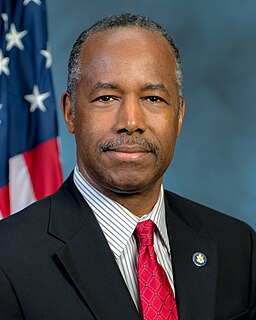This article needs additional citations for verification .(December 2007) (Learn how and when to remove this template message) |
Extemporaneous preaching is a style of preaching involving extensive preparation of all the sermon except for the precise wording. The topic, basic structure and scripture to be used are all determined in advance, and the preachers saturate themselves in the details necessary to present their message so thoroughly that they are able to present the message with neither detailed notes nor perhaps even an outline. Consequently, unprepared preachers may find themselves unable to deliver a message with the same precision as people using detailed notes or memorizing detailed aspects of their speech.
While some might say this style is distinct from impromptu preaching, and that the preacher gives no specific preparation to their message, what Charles Spurgeon referred to as "impromptu preaching" he considered to be the same as extemporaneous preaching. [1] He, in his sermon The Faculty of Impromptu Speech, describes extemporaneous preaching as a process of the preacher immersing himself in the Scriptures and prayer, knowing it so well that he only needs to find the appropriate words in the moment that the sermon is given. He states,
Impromptu preaching is a sermon technique where the preacher exhorts the congregation without any previous preparation. It can be aided with a reading of a Bible passage, aleatory opened or not, or even without any scriptural reference.
- Only thoughtless persons think this to be easy; it is at once the most laborious and the most efficient mode of preaching, [2]
Henry Ware Jr. states,
- The first thing to be observed is, that the student who would acquire facility in this art, should bear it constantly in mind, and have regard to it in all his studies and in his whole mode of study. [ citation needed ]
On the other hand, it is distinct from many other forms of memorized preaching. Proponents claim that the importance of preaching demands it be extemporaneous.

Memorization is the process of committing something to memory. Mental process undertaken in order to store in memory for later recall items such as experiences, names, appointments, addresses, telephone numbers, lists, stories, poems, pictures, maps, diagrams, facts, music or other visual, auditory, or tactical information.
- A reflecting mind will feel as if it were infinitely out of place to present in the pulpit to immortal souls, hanging upon the verge of everlasting death, such specimens of learning and rhetoric. -Charles Finney[ citation needed ]
The style was popular in the late 19th century among Baptist (Primitive Baptist especially), Methodist, Unitarian, and some Presbyterians preachers, such as Blackleach Burritt. [3] [4] [5] Some of the more famous preachers who employed it were Charles Haddon Spurgeon, [6] Charles Grandison Finney and Peter Cartwright [ citation needed ].
Unitarianism is a Christian theological movement named for its belief that the God in Christianity is one person, as opposed to the Trinity which in many other branches of Christianity defines God as three persons in one being: the Father, Son, and Holy Spirit. Unitarian Christians, therefore, believe that Jesus was inspired by God in his moral teachings, and he is a savior, but he was not a deity or God incarnate. Unitarianism does not constitute one single Christian denomination, but rather refers to a collection of both extant and extinct Christian groups, whether historically related to each other or not, which share a common theological concept of the oneness nature of God.
Blackleach Burritt was a preacher during the American Revolutionary War. During the American War of Independence, he was incarcerated in the Sugar House Prison.

A preacher is a person who delivers sermons or homilies on religious topics to an assembly of people. Less common are preachers who preach on the street, or those whose message is not necessarily religious, but who preach components such as a moral or social worldview or philosophy.









